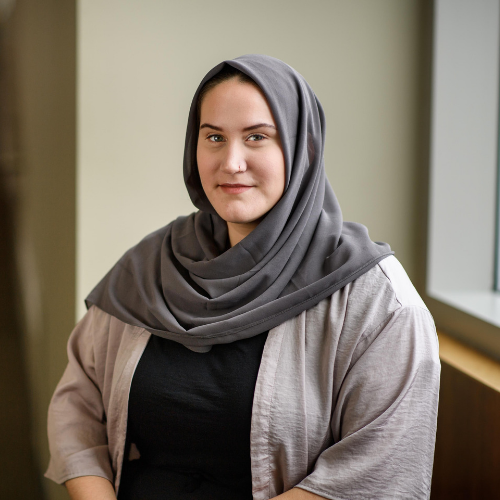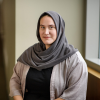
Neily is working at Philly VIP this summer to provide quality volunteer legal services and ensure access to justice for low-income Philadelphians.
I have never been to summer camp. I don’t know campfire songs or scary stories. I don’t have arts and crafts that I sent home and I don’t know how to identify the Big Dipper in the night sky. I never went to summer camp because my parents would send me to Mexico to spend my summers with my abuelita and my extended family—people who, for 10 months out of the year, were just voices on the phone.
Growing up, I imagined I was an ambassador between these two places my family found themselves in; two communities which we were a part of, marked by two languages we spoke. In physically traveling between Mexico and the U.S., I realized that I was not tied to one country. It is that outlook that has helped me navigate many spaces throughout my life: my bi-racial identity, converting to Islam, and now being the first in my family to go to law school.
I can point to any time or individual in my life and see how the law was influential while remaining largely untouchable by the people in my community. I came to law school not just to become an attorney, but to become an ambassador for my clients and the law. We are often told that we can only have one or the other; this or that, here or there, now or later. My life has taught me again and again that there is a space where any two places meet, and we can choose that intersection instead.
I forgot this lesson when I started law school. I, like many do, believed the options were either private or public. I didn’t know which of the two sectors I wanted to study, but I knew I had a skill that I wanted to use. As a bilingual law student, I wanted a summer internship that would allow me to work with people from both of my communities—Spanish and English speakers alike. That’s what ultimately called me to Philadelphia VIP. The population they serve is principally Spanish speaking. Though, what solidified my decision was learning that Philly VIP works at the intersection of private law and public interest.
Philly VIP is a matchmaker; it pairs low-income community members with private attorneys who want to use their experience and expertise to help their community by taking cases pro-bono. As the summer has progressed, I’ve seen how the law influences life here in Philadelphia and witnessed how volunteer attorneys bridge the gap between policy and justice for their clients.
No two days have ever been the same, although there are some constants: calling clients, collecting information, and reaching out to local attorneys. Some days, a complicated probate case settles into a straightforward deed transfer; other days a deed transfer becomes an auto-accident torts defense case, based on the ever-changing needs and lives of Philly VIP clients. Some days, my phone calls to clients bear bad news, but more often than not I get to hear a whoop of happiness when I tell our clients that their case has been accepted by an attorney. The most interesting thing is how many property concepts I learned about last semester that usually "don’t happen in real life" occur right here in Philadelphia (adverse possession is a real thing and the requisite period of time just dropped down to 10 years).
More than anything, Philly VIP is proof that despite the impressions we may have of the legal field, there are spaces where the two silos of the public and private sector meet. My internship at Philly VIP has reminded me that a career in the legal field is not a matter of this or that, but a question that asks how we can build bridges between our communities and our careers.
